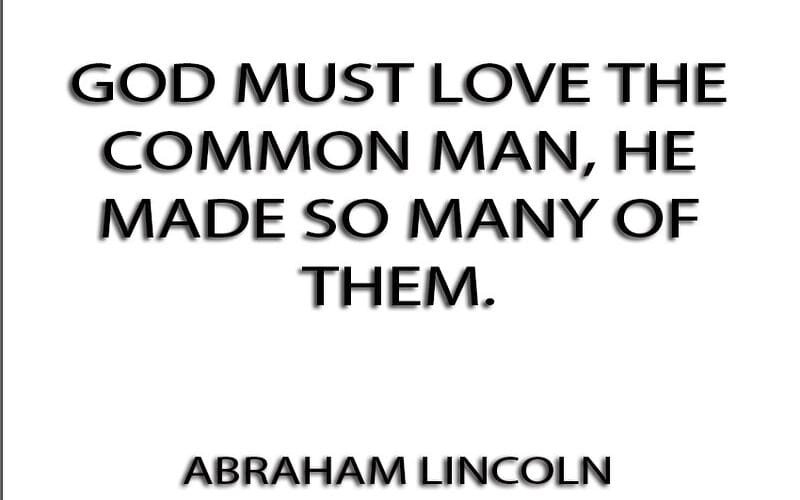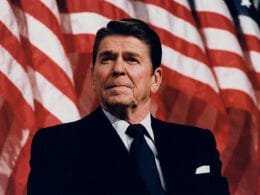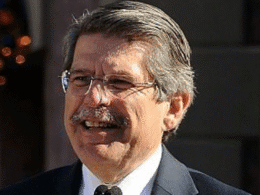Madeleine Albright’s Perspectives
Madeleine Albright, a distinguished figure in American diplomacy, served as the 64th Secretary of State from 1997 to 2001. She was notably the first woman to hold this position, paving the way for future female leaders in international relations. Born in Czechoslovakia, Albright’s early experiences during World War II shaped her views on the importance of governance and human rights. Her insights into global politics, especially concerning the role of religion, are informed by both her personal history and professional expertise.
Throughout her career, Albright has emphasized that religion plays a crucial role in shaping political landscapes worldwide. Her belief that religious beliefs can significantly influence political behavior transcends regional boundaries. This understanding is not merely a theoretical perspective; it is one that she has applied in her diplomatic endeavors. Albright has articulated that political leaders often utilize religious narratives to justify policies and actions, impacting everything from domestic governance to international relations.
Albright’s academic contributions further enhance her perspectives. Through her writings, such as “The Mighty and the Almighty,” she delves into the complex interplay between faith and politics. In this book, she argues that understanding religious motivations is essential for addressing conflicts and fostering peace. By framing her discussions within a historical and sociopolitical context, Albright underscores the notion that religion is not a mere backdrop but a powerful force that shapes the motivations of leaders and nations. Her perspective invites a more nuanced dialogue on how faith influences global politics, challenging simplistic views that neglect the depth of religious conviction in political decision-making.
The Historical Context of Religion in Politics
The relationship between religion and politics has been a significant aspect of human civilization, shaping societies and influencing governance throughout history. Historical evidence suggests that religion has often intertwined with the political landscape, serving as both a source of moral authority and a catalyst for conflict. Notable events underscore this dynamic, such as the role of the Catholic Church during the Middle Ages, which wielded substantial power and influenced monarchs across Europe. The Investiture Controversy, for example, illustrated the struggle between secular and ecclesiastical authority, ultimately leading to a reconfiguration of political power structures.
In addition to European contexts, the interplay between religion and politics can be observed in various cultures and faiths. The Islamic Caliphate exemplifies how religious leaders played pivotal roles in governance, establishing laws derived from the Quran and Hadith that influenced the societal order. Similarly, the intertwining of Shinto and state governance in Japan highlights how indigenous beliefs can shape national identity and political legitimacy. Such instances reflect a historical continuity where religion has acted as a foundational element in the advancement of political authority.
Case Studies of Religion’s Impact on Global Issues
Religion has often played a critical role in shaping global political landscapes, significantly influencing conflicts and peace-building initiatives. In her insightful work, Madeleine Albright presents various case studies that illustrate how religious beliefs and affiliations can serve both as catalysts for conflict and as instruments of peace. One prominent example is the sectarian violence in the Middle East, particularly between Sunni and Shia Muslims. This deep-rooted division has frequently escalated into violent confrontations, contributing to instability in countries such as Iraq and Syria. Albright’s examination reveals that these religious differences are often exacerbated by political power struggles, highlighting how religion can intersect with national and ethnic identities, leading to devastating consequences.
Conversely, Albright also highlights cases where religious leaders and organizations have successfully facilitated reconciliation efforts. For instance, the role of the Catholic Church in peace negotiations during the civil conflicts in Guatemala illustrates how faith can foster dialogue among opposing factions. The efforts of religious institutions to promote human rights and advocate for peace demonstrate the potential for religion to act as a unifying force, enabling communities to address grievances through dialogue rather than violence. This duality of religion as both a source of conflict and a means for promoting peace is further evidenced in the case of South Africa. The Truth and Reconciliation Commission, led by Archbishop Desmond Tutu, utilized spiritual and moral frameworks to heal a nation divided by decades of apartheid.
These examples underline the multifaceted nature of religion in the context of global issues. As Albright articulates, understanding how religion influences political dynamics is crucial for policymakers and practitioners alike. It underscores the importance of recognizing the potential of religious actors and organizations in peace processes while being acutely aware of how religious sentiments can fuel divisions. This nuanced understanding provides a pathway toward conflict resolution and international cooperation, underscoring the indispensable role of religion in world politics.
The Future of Religion in World Politics
As we look ahead, the role of religion in world politics appears increasingly complex and multifaceted. Madeleine Albright emphasizes that rising religious nationalism poses both challenges and opportunities in the global political landscape. Countries across the globe are witnessing a resurgence in religious identification, which often correlates with heightened tensions and conflict. However, Albright also posits that this very phenomenon can serve as a catalyst for dialogue and understanding. The dual-edged nature of religion implies that it has the potential to either exacerbate divisions or bridge gaps in society, relying heavily on how religious narratives are leveraged by political entities.
In this rapidly changing world, Albright underscores the importance of interfaith dialogue and cooperation among different faith communities. Such initiatives can foster mutual understanding and respect, creating avenues for peaceful coexistence. She argues that policymakers must recognize religion as a significant factor that influences both domestic and international politics. This recognition requires a nuanced approach to governance, where engagement with religious leaders and faith-based organizations is not only welcomed but deemed essential in policy formulation and conflict resolution.
Albright also highlights the critical role that faith-based organizations can play in promoting peace and stability in global affairs. These organizations often operate at grassroots levels, addressing the needs of communities and building trust in environments where political systems may be failing. By collaborating with these groups, governments can harness the collective power of faith to enact social change. In conclusion, the future of religion in world politics will demand a sophisticated understanding of its influence, necessitating both policymakers and global leaders to adopt strategies that embrace the potential of religion to unite rather than divide.




